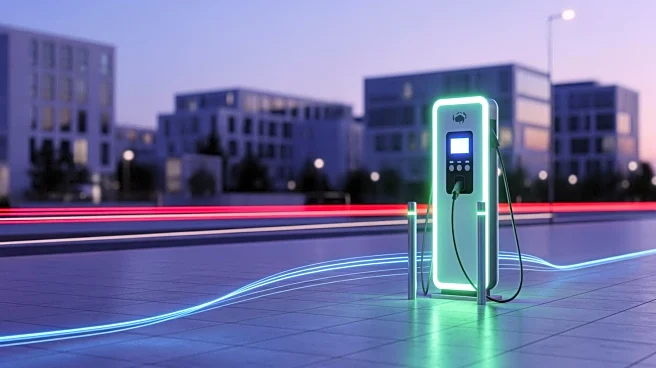What's Happening?
The UK government is expected to unveil a $2 billion package aimed at accelerating the transition to electric vehicles (EVs). This includes an additional £1.3 billion for the Electric Car Grant scheme,
which has already helped over 35,000 drivers switch to EVs by reducing upfront costs. The Budget, scheduled for November 26, will also announce £200 million to speed up the rollout of chargepoints across Britain. The initiative is part of a broader goal to achieve net-zero greenhouse gas emissions by 2050, with plans to phase out sales of new petrol and diesel cars by 2030. Despite these efforts, demand for EVs has stalled due to high upfront costs, and the opposition Conservative Party has criticized the government's spending priorities.
Why It's Important?
The government's investment in electric vehicles is crucial for reducing carbon emissions and promoting sustainable transportation. By phasing out petrol and diesel cars, the UK aims to significantly lower its environmental impact. The additional funding for charging infrastructure is essential for supporting the growing number of EVs and ensuring accessibility for all drivers. However, the criticism from the opposition highlights the political challenges of implementing green policies amid economic pressures. The initiative reflects the government's commitment to environmental sustainability, but it also underscores the need for balancing fiscal responsibility with climate goals.
What's Next?
The Budget announcement will likely spark debates on the effectiveness of the Electric Car Grant scheme and the government's spending priorities. Stakeholders, including political leaders and environmental groups, will closely monitor the government's actions and responses to these initiatives. The rollout of chargepoints will be crucial for supporting the transition to electric vehicles, and further consultations may be needed to address concerns about accessibility and affordability.









